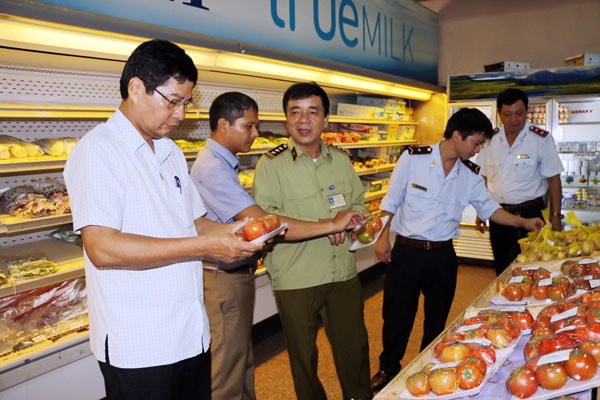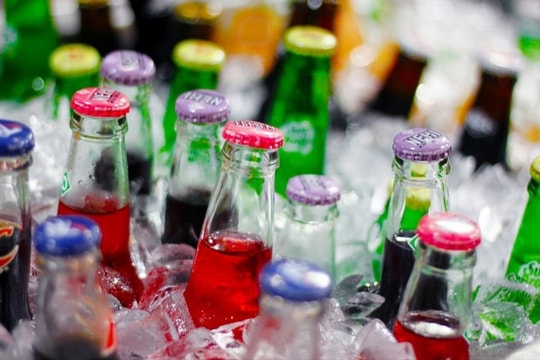In 2017, Nghe An discovered more than 7,000 violations in goods trading.
(Baonghean.vn) - This is the result of the 2017 market inspection and control by the Nghe An market management force.
Specifically, in 2017, through inspection of 8,643 cases, the market management authorities handled 7,156 cases with a total fine value of more than 12.2 billion VND. Of which, administrative fines: 7.6 billion VND and the value of confiscated and destroyed goods was more than 4.6 billion VND.
Regarding goods, the most violated field is handmade wine with 223/241 inspections detecting violations, focusing on errors:trading in alcohol of unknown origin.
 |
Interdisciplinary inspection team inspects goods at Maximark supermarket. Photo: My Ha. |
In addition, items such as cigarettes, gasoline, liquefied petroleum gas, and food safety and hygiene also have a fairly high number of violations with errors such as: No certificate of eligibility for business; Expired certificate of inspection of gasoline pumps; Not having enough equipment to trade in oil; Violations of signs, listing of sales time, unclear and inconspicuous retail prices or trading in gas cylinders that do not meet the conditions for circulation on the market, transporting gas without a transport license, trading in expired gas cylinders...
In the field of food safety and hygiene, common violating items are milk, candy, and soft drinks, with the main fault being smuggled food of unknown origin.
According to the assessment of the authorities, in 2017, the situation of smuggling, counterfeiting and banned goods still occurred frequently and became more complicated with increasingly sophisticated and cunning methods and tricks of operation, causing difficulties in the control and management of the authorities.
Smuggling activities mainly focus on items such as smuggled cars, forest products, gasoline, auto parts, cigarettes, rare wildlife, beverages, electronics, refrigeration, and cosmetics smuggled into Nghe An through border gates.
Besides, cheap, poor quality goods that do not ensure food safety and hygiene are still widely circulated in the market, focusing on items such as cosmetics, household electronics, mobile phones, ready-made clothes, shoes, etc.








